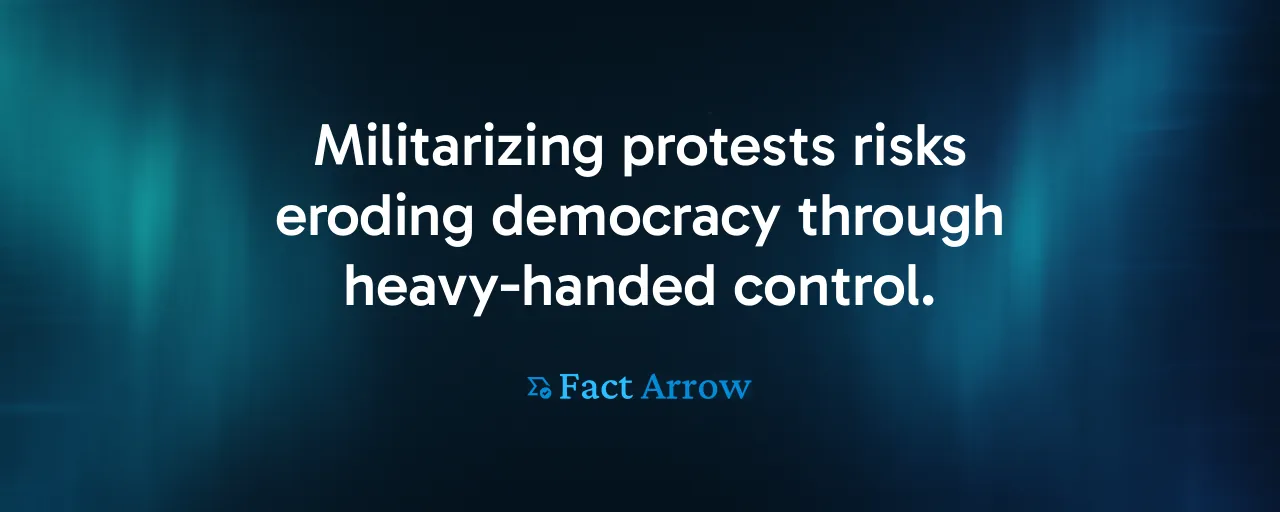A Troubling Scene Unfolds
On June 13, 2025, Los Angeles residents faced an unsettling reality: 200 Marines from the 2nd Battalion, 7th Marine Regiment, equipped with crowd-control gear, stood watch over the Wilshire Federal Building. Their deployment was a response to protests ignited by Immigration and Customs Enforcement raids. President Trump's order to deploy them feels like a betrayal of trust, a heavy-handed move that puts our democratic principles at risk. Why send combat-ready Marines to a city already grappling with tension?
The decision ignored California's leaders, who voiced strong opposition. Governor Gavin Newsom labeled it an attack on state authority, and his concern resonates. Federalizing 4,000 National Guard members and inserting Marines without local consent reveals a troubling disregard for community voices. This action prioritizes control over collaboration, raising fears of a militarized future where dissent faces armed resistance.
The presence of Marines stirs memories of painful history. In 1968, troops at the Chicago DNC clashed with protesters, and in 1970, National Guardsmen at Kent State killed four students. Those moments damaged public faith in institutions. Today's deployment, though framed as protective, risks a similar erosion. When military force overshadows dialogue, our right to protest feels fragile.
Pentagon officials insist the Marines are securing federal property. Their role does not extend to policing civilians. Yet their combat training and visible presence create an intimidating atmosphere. Protesters exercising their First Amendment rights now face heavily armed troops, which stifles free expression. How can a community heal when its grievances are met with such force?
This move intensifies unrest, offering no resolution. By overriding local authorities, the administration signals a preference for dominance over partnership. The question looms large: Are we sacrificing our freedoms for the sake of order?
A Flawed and Costly Approach
The legal foundation for this deployment raises red flags. The administration relies on 10 U.S.C. §12406 and claims inherent authority to protect federal property, bypassing the Insurrection Act's formal requirements. Legal experts argue this approach grants presidents unchecked power, threatening democratic oversight. A district court initially deemed the Guard's mobilization unlawful, though the Ninth Circuit paused that ruling. This legal battle underscores a critical issue: Who controls when our military intervenes at home?
Historical examples highlight the misuse of such power. In 1992, Marines patrolled Los Angeles after local officials requested aid. In contrast, California's leaders opposed this deployment, making it feel like an imposition. Eisenhower's 1957 use of troops in Little Rock advanced justice by enforcing desegregation. Guarding federal buildings amid immigration protests appears to be an effort to silence dissent, with little regard for upholding rights.
Public sentiment reflects deep unease. Research from 2020 shows most Americans, especially Democrats, oppose using troops for domestic unrest unless it's a clear emergency. Only 28% of Democrats supported such deployments during the 2020 protests, compared to 83% of Republicans. Military officers, surveyed by the Naval War College, also resist domestic policing roles, citing damage to morale. If even the military questions this mission, its legitimacy falters.
The financial burden is staggering. The Pentagon estimates this operation costs $134 million, funds that could support schools, healthcare, or community initiatives addressing unrest's root causes. Deploying local police or state Guard units would be less costly and more appropriate. This approach feels like a misuse of resources, favoring military spectacle instead of practical solutions.
Some defend the deployment, citing the $2 billion in damages from 2020 protests as proof of the need for strong action. Yet history shows militarized responses often worsen conflicts. In 2020, federal agents in Portland escalated protests, failing to calm them. Troops in Los Angeles risk the same outcome, turning peaceful demonstrations into flashpoints.
Veterans' organizations, including VoteVets and Common Defense, denounce this as an authoritarian overreach that undermines military readiness and public trust. Their warnings carry weight. Using troops against civilians frays the military's role as a unifying force, pushing us toward division and away from unity.
Demanding a Better Path
This moment calls for urgent reform. The Insurrection Act's broad language allows presidents to deploy troops with little accountability. Analysts at the Center for American Progress advocate tightening these powers, requiring congressional approval and state consent. Such changes would protect our democracy from executive overreach and ensure the military stays out of civilian disputes.
Local solutions offer a better way. Los Angeles has the resources—police and state Guard units—to manage unrest without federal troops. Investing in community programs and de-escalation training could address the systemic issues driving protests, fostering healing, avoiding confrontation. Why choose military force when dialogue is within reach?
The risks of inaction are grave. Normalizing troops in our cities threatens free speech and deepens partisan divides. The New Republic cautions that unchecked deployments could target vulnerable communities, like immigrants, stifling dissent. Preventing this erosion of our rights requires immediate action.
Reform of the Insurrection Act by Congress is essential, mandating judicial review and transparency for domestic military missions. Citizens are called to demand accountability, questioning the costs and consequences of these deployments. Above all, rejecting the idea that military force solves civil unrest is paramount. Our democracy thrives on trust and inclusion, and intimidation undermines it.
Los Angeles deserves a government that listens to its people, a government that avoids deploying troops against them. Let's commit to a future where our military protects our values, where its purpose extends beyond guarding buildings, and where every voice is heard.
